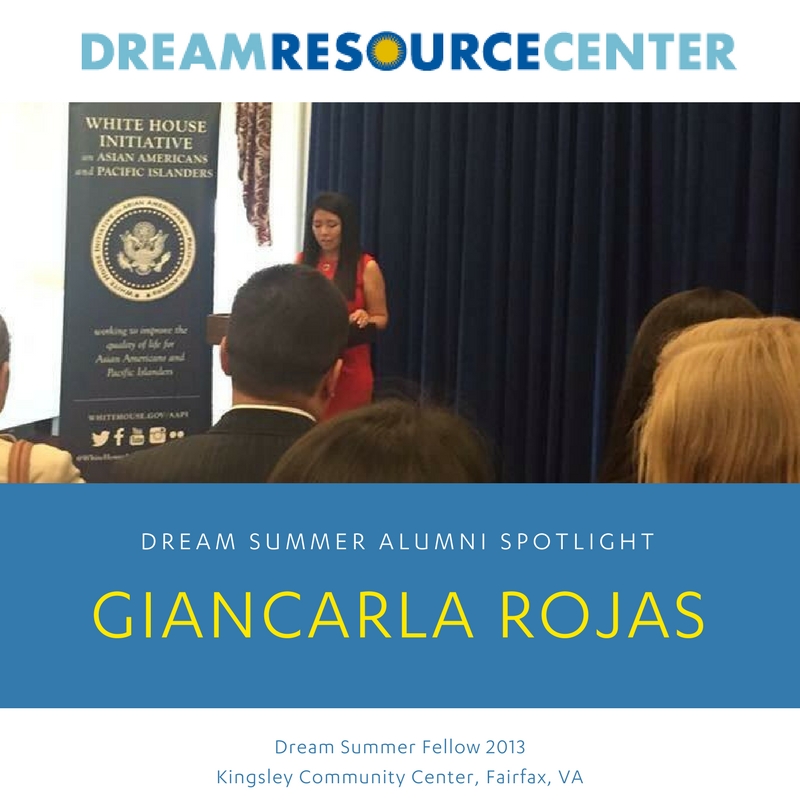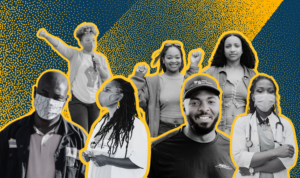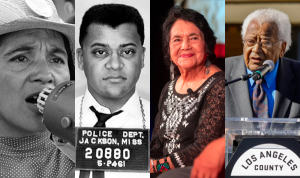Dream Summer Alumni Spotlight: Giancarla Rojas

Giancarla Rojas graduated from high school in 2012, the same year that President Obama announced the Differed Action for Childhood Arrivals (DACA), an executive order that grants undocumented people who came to the U.S. as children with protection from deportation, and a work permit. It was the same year Giancarla became a Dream Summer fellow. After graduating from Northern Virginia Community College, she became the first undocumented student accepted at Radford University where she she graduated with a Bachelors of Science in International Economics. With the help of DACA, Giancarla applied to over 60 scholarships and worked during her summers to pay for her tuition.
Upon graduation she decided to help more students attend college and graduate debt-free. She currently serves as the Vice-President of Scholarship Sharing, a non-profit organization dedicated to help Virginia and Washington D.C. students to get connected to resources that will allow them to pay for school. Giancarla has worked with Dreamers of Virginia, CASA de Maryland, and the Virginia Coalition for Immigrants Rights, from which she received recognition for her organizing efforts at the sixth annual Virginia Latinos Summit in 2015.
What drives the work you do?
I do this work because I believe I can make a difference. I feel like there is so much to do on many levels among the different issues. Before getting involved in housing affordability, I worked on Immigration, though these are different issues both are tied. Something that motivates me and inspires me to keep working for social justice is knowing there’s not much support for minorities to attained affordable housing.
What is your favorite Dream Summer memory?
My favorite part of the Dream Summer Fellowship was meeting other undocumented individuals, getting to know them, and sharing experiences. Most of the people I met were Californians and of course doing amazing work. Getting to meet them was exciting and I hoped to emulate their work.
How did you hear about Dream Summer and why did you apply to Dream Summer?
I became interested in Dream Summer through my friend Excy, who strongly recommended the program. I decided to apply because for the first time I would be compensated for something that I was passionate about. and I was able to choose an organization where I worked with during the summer.
What was one thing you learned during your fellowship/one take-away moment?
With the organization I worked with (Kingsley Community Center), I had been volunteering for three years and through the fellowship I was able to work there full-time. I met many people, and was able to expand the programs there. I was able to work with Spanish-speaking individuals and teach them different skills.
How has Dream Summer Fellowship shaped/helped/advance/provided a platform to move forward in your career?
I had joined the movement prior to Dream Summer Fellowship, but being connected to other Dream Summer alum opened the doors to take part on other activities. Dream Summer gave me a base and way to a structure. Professionally, I learned to measure my strengths, and know where I needed to address improvements.
If you could share one piece of advice with individuals, what would that be?
One thing I struggled with after graduating from college was knowing the numerous opportunities available, and what the limit of my status means for some opportunities. As well as not knowing anyone in my field who I can connect with for advice. My piece of advice is to seek help even from people not if your field. The Dreamer Summer alumni network was crucial for me.
What are your future plans?
In the long run, I want to go to Law School. At the beginning of the Dream Summer Fellowship, I felt like I wasn’t ready, but the program has been a factor in thinking otherwise. Right now I’ve been working with Scholarship Sharing, and I am working to bring more scholarships to students. I also work with BRAVO tenants on landlord and tenants issues. We are currently working on a campaign with organizations and developers who receive money for improvement, but they do not use it for the benefit of the tenants. In affordable housing, there are families who are often minorities and we are also setting up workshops families can work on language skills to communicate with landlords. We are also working on the policy aspect to do develop working policies.


